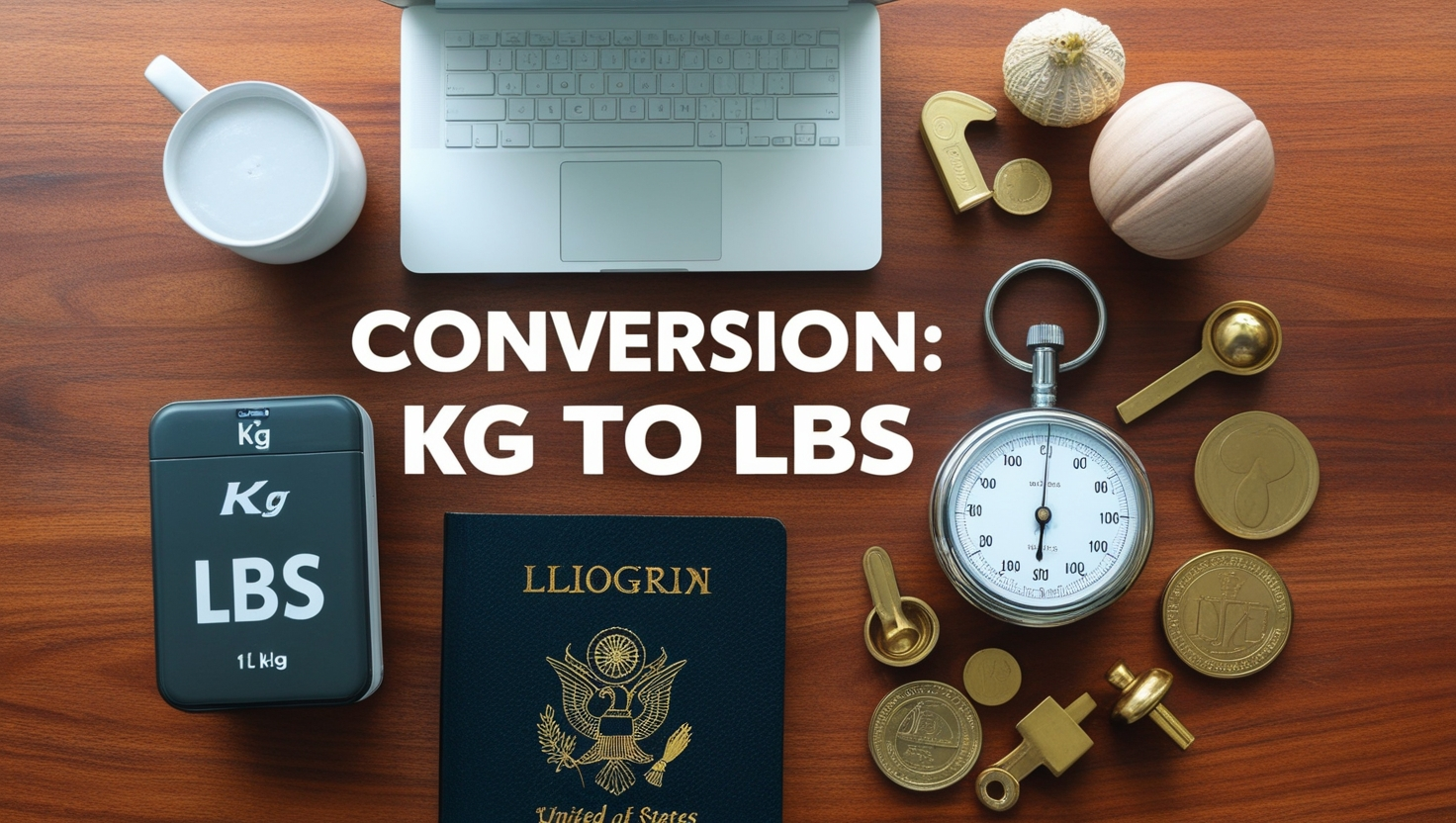Introduction
The metric and imperial systems often collide daily, particularly when discussing weight measurements. One of the most common conversions people encounter is from kg to lbs, especially in countries with different measurement systems. While kilograms (kg) are the standard unit of mass in most of the world, particularly in countries that follow the metric system, pounds (lbs) are more commonly used in the United States and a few other places that follow the imperial system.
Understanding how to convert kg to lbs is essential for everyday tasks, whether traveling, shopping, or working on fitness goals. This article will explore the kg to lbs conversion process, provide valuable tips, and delve into its importance across different fields.
The Basics: What are Kilograms and Pounds?
To start, it’s essential to understand the definitions of kilograms and pounds.
- Kilogram (kg): The International System of Units (SI) uses the kilogram as its base unit of mass. One kilogram equals the mass of the International Prototype of the Kilogram, a physical object kept in France. For practical purposes, 1 kg is equivalent to the weight of a liter of water.
- Pound (lb): The pound is part of the imperial system and is used primarily in the United States, the UK, and a few other countries. It originated from the Roman unit “libra,” where the abbreviation “lb” comes from. Today, one pound is defined as 0.45359237 kilograms.
How to Convert KG to LBS
Converting kg to lbs is straightforward once you know the basic formula.
1 kilogram (kg) = 2.20462 pounds (lbs)
To convert kilograms to pounds, you simply multiply the kilograms by 2.20462. Here’s the formula:
Weight in pounds (lbs)=Weight in kilograms (kg)×2.20462\text{Weight in pounds (lbs)} = \text{Weight in kilograms (kg)} \times 2.20462Weight in pounds (lbs)=Weight in kilograms (kg)×2.20462
For example:
- If you want to convert 5 kg to lbs, multiply five by 2.20462, which equals approximately 11.02 lbs.
- For 10 kg, the conversion would be 10 × 2.20462 = 22.05 lbs.
If you need to convert pounds to kilograms the other way, you would divide the number of pounds by 2.20462 instead of multiplying.
Quick Reference Chart: KG to LBS
Here’s a quick reference chart to help you with the most common kg to lbs conversions:
| Kilograms (kg) | Pounds (lbs) |
| 1 | 2.20462 |
| 5 | 11.0231 |
| 10 | 22.0462 |
| 20 | 44.0924 |
| 50 | 110.231 |
| 100 | 220.462 |
This chart is a valuable tool for quick conversions, whether you’re cooking, packing for a trip, or calculating fitness progress.
Practical Applications of KG to LBS Conversions
Travel and Luggage: One of the most common times you’ll need to convert kg to lbs is when traveling. Airlines around the world use different units of measurement for luggage allowances. For instance, European airlines often list baggage weight limits in kilograms, while U.S.-based airlines use pounds. Knowing how to convert kg to lbs ensures you pack the right amount and avoid extra fees.
Fitness and Weight Training: Many people follow fitness plans that track their body weight or lift weights. Depending on where you are, gym equipment may list weights in kilograms or pounds. If you’re following a fitness program from the U.S. but live in a metric-using country, knowing how to convert kg to lbs helps you accurately follow your plan and track your progress.
Shopping: In some international grocery stores or marketplaces, products may be labeled in kilograms or pounds, depending on the region. When purchasing items like produce, meat, or grains, it’s helpful to convert kg to lbs to understand how much you’re buying, mainly if you’re used to one system over the other.
Shipping: When dealing with international shipping or postage, you may need to convert between kg to lbs. Shipping companies often calculate costs based on weight, and packages sent between countries that use different systems require conversion to ensure you stay within weight limits and calculate shipping fees accurately.
Tools for Easy Conversion
While manual conversions can be done using the formula, numerous online calculators and apps are designed to quickly convert kg to lbs (and vice versa). These tools are handy when you’re in a rush and need an accurate answer.
Many smartphones have built-in conversion tools in their calculator apps for offline options. Alternatively, printing a reference chart or keeping one on your phone for easy access can simplify day-to-day conversions.
Why the Difference Matters
The necessity to convert kg to lbs goes beyond convenience; it speaks to the global diversity in measurement systems. Although many countries have adopted the metric system, countries like the U.S. continue to use the imperial system. This difference in measurement standards highlights the importance of understanding both systems, especially in fields like science, medicine, and engineering, where precise measurements are critical.
Additionally, understanding how to convert kg to lbs ensures clear communication in professional or personal contexts. Switching between these units of measurement is a valuable skill whether you’re collaborating with an international colleague or simply reading a recipe from another country.
Conclusion
Understanding the conversion from kg to lbs is a practical and necessary skill in a world that often oscillates between the metric and imperial systems. Whether you’re traveling, working out, shopping, or shipping, knowing how to convert kilograms to pounds ensures accuracy in weight measurements. By keeping the conversion formula in mind or using a handy tool, you can easily navigate these two systems, ensuring that your measurements are always correct.
With the basic formula of kg to lbs conversion—1 kg equals 2.20462 lbs—you’ll never be left guessing, no matter what situation you find yourself in.
